Search Results for Biotech & Medicine
To browse more topics, click a topic below or try our advanced search.
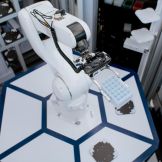 Blog Post
Blog PostTackling the “Impossible” in Biotechnology with AI

Every medicine in your local pharmacy has taken its own unique path to the shelf. From discovery and testing to manufacturing, a new tool is rapidly transforming those pathways: artificial… Read more
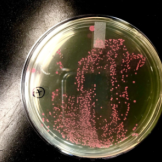 Blog Post
Blog PostTiny Transformations: Harnessing Bacterial Behavior to Cure Disease

Frederick Griffith’s 1928 experiment on bacterial transformation paved the way for numerous advances in medicine. Griffith was trying to develop a vaccine for pneumonia during which he experimented… Read more
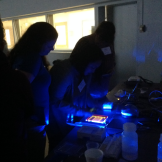 Blog Post
Blog PostSeeing Individual Differences Through a Genomics Lens in the Classroom

A new school year is beginning now in the United States, and for some students, that means they will get exclusive access to a new ABE module, in the making for more than 3 years. The topic?… Read more
 Career Profile
Career ProfileLinda Murakami

When Linda Murakami was in third grade, a team of workers came and removed the top 6 inches of soil in her and her neighbor’s backyards. They were concerned about arsenic contamination from the lead… Read more
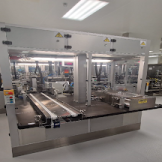 Blog Post
Blog PostSteering a Course to Success in Biotech Manufacturing

In biopharmaceutical manufacturing, there is no “one size fits all” approach when it comes to who can pursue and succeed in a career. Some have backgrounds and an early interest in science, whereas… Read more
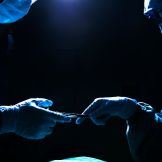 Blog Post
Blog PostEthical Questions Around Transplanted Organ Distribution

Worldwide, over 100,000 people receive life-saving organ transplants every year. Unfortunately, many people still die while awaiting transplant. In the United States, 17 people awaiting transplant… Read more
 Blog Post
Blog PostCan Mushrooms Cure Disease?

When many people think of fungi, they simply think mushroom. However, Kingdom Fungi is a vast and diverse group of eukaryotic organisms found worldwide. Fungi include yeasts, molds, and mushrooms.… Read more
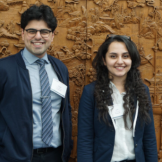 Blog Post
Blog PostA Biotech Business with an Eye Toward the Future

When their paths crossed as high school students, Leila Daneshmandi and Armin Tahmasbi Rad never imagined they would create a company together as adults. By chance, they both attended the… Read more
 Blog Post
Blog PostBridging the Gap Between Immunology and Data Science

"Bridging the gap between immunology and data science allowed me to make new breakthroughs that were not readily possible." —Marvin Gee This story is part of an ABE series on data science in… Read more
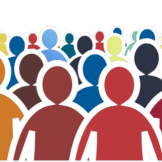 Blog Post
Blog PostAnalyzing Our Genes to Pinpoint Disease

You may never have heard of her, but Dr. Mary-Claire King is a significant name when it comes to the study of genetics. King was born in 1946 in Illinois (USA). The loss of her childhood best friend… Read more
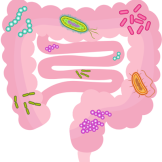 Blog Post
Blog PostWhat's Gut Got to Do with It?

When we hear about COVID, most of us think of it as a respiratory illness. However, current research is beginning to link gut health with the severity of COVID symptoms. But you may be asking, How… Read more
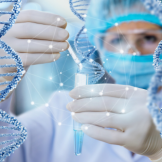 Blog Post
Blog PostCAR-T Therapy and Other Immunotherapies

Immunotherapy is fast becoming a promising treatment for cancer. By using patients’ own immune cells to treat cancer, doctors can avoid using damaging radiation or chemotherapies. Cancer is a group… Read more
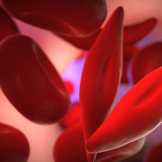 Blog Post
Blog PostViruses Offer New Hope for Sickle Cell Patients

In an era where a virus has upended our lives and harmed many, it’s easy to forget that viruses can also be a force for good. Researchers have recently been experimenting with harnessing several… Read more
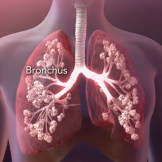 Blog Post
Blog PostViruses to the Rescue: A Promising Treatment for Cystic Fibrosis

Cystic fibrosis (CF) is a progressive genetic condition that causes recurrent respiratory infections and limits a patient’s ability to breathe over time. A variety of different mutations in… Read more
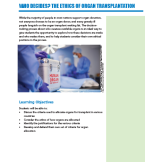 Resource (Teaching Materials, Classroom-based, Pocket Lesson)
Resource (Teaching Materials, Classroom-based, Pocket Lesson)Who Decides? The Ethics of Organ Transplantation

In this pocket lesson, students learn about the process adopted in various areas of the world to decide who receives available organs. This content gives students the opportunity to explore how these… Read more
Class Sessions3Appropriate AgesUpper Secondary, Introductory
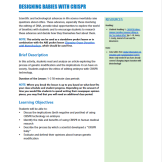 Resource (Teaching Materials, Classroom-based, Pocket Lesson)
Resource (Teaching Materials, Classroom-based, Pocket Lesson)Designing Babies with CRISPR

In this pocket lesson, students read and analyze an article exploring the process of genetic modification and the implications it can have on society. Students explore the ethics of editing embryos… Read more
Class Sessions2–3Appropriate AgesUpper Secondary, Advanced
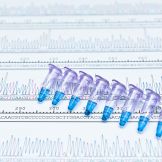 Resource (Classroom-based, Pocket Lesson)
Resource (Classroom-based, Pocket Lesson)Changing Organ Donation with Biotechnology

In this pocket lesson, students explore the need for innovative solutions to the shortage of transplantable organs and how gene editing technologies might offer a potential solution. Read more
Class Sessions2-3Appropriate AgesUpper Secondary, Advanced